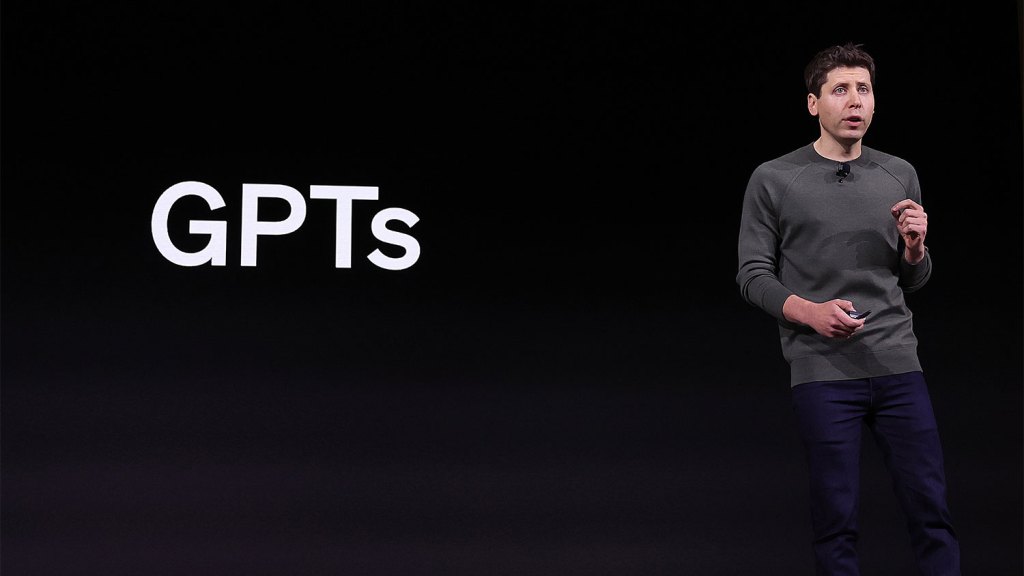
After telegraphing to devs last week that it would do so, OpenAI has launched a store for GPTs, custom chatbot apps powered by its text- and image-generating AI models (e.g. GPT-4 and DALL-E 3).
The GPT Store, as it’s called, lives in a new tab in the ChatGPT client on the web, and features a range of GPTs developed both by OpenAI’s partners and the wider dev community. GPT users can browse popular and trending GPTs on the community leaderboard, which is organized into categories like lifestyle, writing, research, programming and education.
To access the GPT Store, users must be subscribed to one of OpenAI’s premium ChatGPT plans — ChatGPT Plus, ChatGPT Enterprise or the newly launched ChatGPT Team.
A few of the GPTs available at launch include a trail recommender from AllTrails, a code tutor from Khan Academy and a content designer from Canva. All are free to use — for now. (More on that later.)
Building GPTs doesn’t require coding experience, and GPTs can be as simple or complex as a developer wishes. Devs can simply type the capabilities they want their GPT to offer in plain language and OpenAI’s GPT-building tool, GPT Builder, will attempt to make an AI-powered chatbot to perform those.
A GPT can be trained on a cookbook collection so that it can answer questions about ingredients for a specific recipe, for example. Or a GPT could ingest a company’s proprietary codebases so that developers can check their style or generate code in line with best practices.
To list GPTs in the GPT Store, developers have to verify their user profiles and submit their GPTs to OpenAI’s new review system — which involves a mix of human and automated review — to ensure the GPTs comply with the company’s terms of use. (Users can also report offending GPTs that slip through the cracks.)
Given OpenAI’s track record of recruiting poorly paid, overworked contractors in the developing world to moderate and improve its GenAI systems, I sent the company several questions about the “human” element of the GPT Store review process, including how much the reviewers are being compensated and whether they have access to mental health resources. The company hadn’t responded as of publication time; I’ll update this post if they eventually do.
At launch, devs won’t be able to charge for GPTs. But OpenAI plans to launch a “GPT builder revenue program” sometime in Q1, with U.S. builders earning income based on “user engagement” with their GPTs. OpenAI says that it’ll provide details on the criteria for payments at a future date.
The GPT Store was announced last year during OpenAI’s first annual developer conference, DevDay, but delayed in December — almost certainly due to the leadership shakeup that occurred in November, just after the initial announcement. (The short version of the story is, CEO Sam Altman was forced out by OpenAI’s board of directors and then — after investors and employees panicked — brought back on with a new board in place.)
GPTs effectively democratize generative AI app creation — at least for apps that use OpenAI’s family of models. In fact, GPTs could kill consultancies whose business models revolve around building what are essentially GPTs for customers. That’s not necessarily a good thing… but we’ll have to wait to see how it all plays out.
Update January 11, 1:07 Eastern: In response to my question about the GPT moderation process, an OpenAI spokesperson provided this statement:
“As a first step, before any human reviewer sees a GPT application, we leverage our AI models for content screening based on our GPT policy guidelines. We work with our existing vendors that support OpenAI’s customer support and compliance efforts to provide an additional review layer before the GPT is published publicly. We partner with vendors who compensate these reviewers well for the important work they do and ensure they are offered access to industry-leading wellness resources.”



